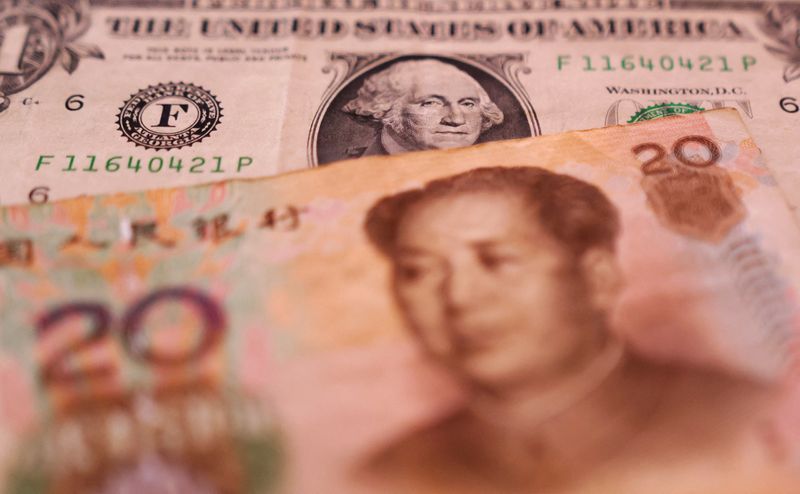
By Kevin Buckland
TOKYO (Reuters) -The dollar eased slightly on Monday as investors gauged the implications of U.S. President Joe Biden’s decision to end his re-election campaign and clear the way for another Democrat to challenge Donald Trump.
China’s yuan weakened after the central bank’s surprise decision to cut a key interest rate. The China-sensitive Australian dollar also fell, reversing an earlier advance.
The U.S. currency slipped 0.03% to 157.435 yen, while the euro gained 0.07% to $1.0891 and sterling added 0.08% to $1.2921.
Biden announced he was exiting the race on Sunday, and endorsed Vice President Kamala Harris to replace him as the Democratic candidate in the November election. Harris quickly received the backing of many within the party, but several high profile names stayed quiet, including former House of Representatives Speaker Nancy Pelosi.
Former President Trump, the Republican nominee, sits well ahead in betting markets following Biden’s disatrous debate performance last month and ensuing questions about his suitability to run.
Commonwealth Bank of Australia (OTC:CMWAY) strategist Joseph Capurso warned it was too early to read much into the dollar’s reaction.
“The bottom line is what the polls show this week,” Capurso said, explaining that a decline in odds for a Trump win should see the dollar weaken, and vice versa.
“Harris might be a stronger candidate, but is it enough to turn the polls?”
Meanwhile, the dollar strengthened 0.1% to 7.2943 yuan in offshore trading after the People’s Bank of China unexpectedly cut the seven-day reverse repo rate to 1.7% from 1.8%, saying the move would improve open market operations and support the real economy. That was followed minutes later by surprise reductions to the one- and five-year loan prime rates.
The Australian dollar sagged 0.21% to $0.6671, giving up earlier gains of about the same margin following news of Biden’s withdrawal.
The New Zealand dollar fell 0.22% to $0.5996.

“Sentiment is fragile and AUD/USD has clearly taken notice … with China’s rate cuts adding fuel to the bearish fire,” said Matt Simpson, a market analyst at City Index.
“Fed policy and yield differentials are no longer the only game on town, and we’re just getting warmed up for the U.S. election.”
This post is originally published on INVESTING.





